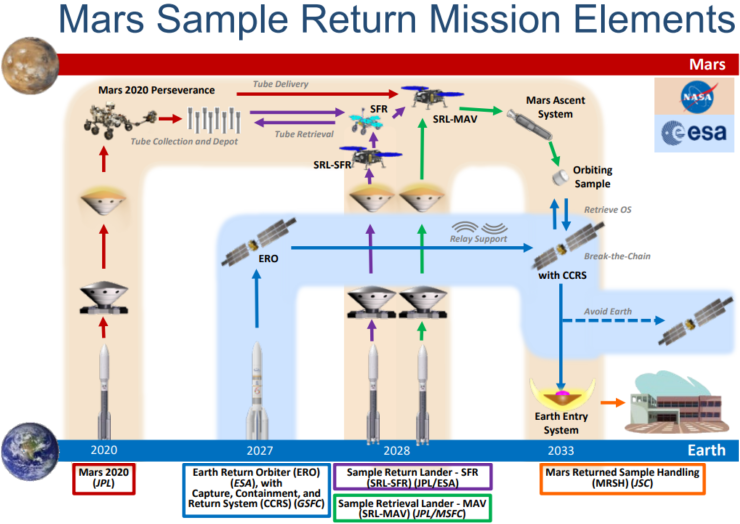Proposed Budget Cuts Threaten NASA's Mars Sample Return Mission

The future of NASA's Mars Sample Return mission hangs in the balance as the Trump administration's proposed budget for fiscal year 2026 suggests significant cuts to NASA's scientific initiatives. This mission, which aims to retrieve soil samples collected by the Perseverance rover and return them to Earth, is facing potential cancellation due to escalating costs and shifting policy priorities.
In the fiscal year 2026 budget proposal, President Trump has targeted high-cost scientific missions for elimination, with Mars Sample Return being a prime candidate. This mission, which was initially budgeted at $7 billion, has seen its price tag swell due to delays and mismanagement, leading to estimates as high as $11 billion, according to an audit by NASA's Office of Inspector General published in February 2024.
The Mars Sample Return mission represents the culmination of decades of engineering efforts and investment, designed to advance our understanding of Mars' geology and potential for past life. The Perseverance rover, which landed on Mars in February 2021, has been diligently collecting and caching soil samples in anticipation of this mission. However, with the proposed budget cuts, the legacy of the Perseverance mission is now in jeopardy.
Lockheed Martin, a leading aerospace and defense firm, has stepped forward with a leaner alternative plan that proposes to complete the Mars Sample Return mission for under $3 billion on a fixed-price contract. This proposal, while potentially appealing in terms of cost savings, raises concerns about the thoroughness and scientific value of a mission that has already been deemed technically complex and ambitious.
The original mission design called for a sophisticated sequence of operations: a spacecraft would land near Perseverance’s sample depots, deploy a robotic rover to collect the cached samples, and then launch them into Martian orbit for retrieval by another spacecraft. Lockheed Martin’s proposal suggests simplifying this approach by using lighter spacecraft designs based on previous missions, such as the InSight lander and the Genesis spacecraft.
Critics argue that while the private sector can deliver efficiencies, it cannot replicate the scientific rigor and exploratory spirit that NASA embodies. Casey Dreier, Chief of Space Policy at The Planetary Society, emphasized that scientific inquiry is a process that extends beyond mere profitability. Dreier cautioned that the proposed budget cuts could lead to a 'dark age' for NASA science, hampering future projects and undermining U.S. leadership in space exploration.
Former NASA astronaut Terry Virts described the budget proposal as 'ridiculous,' urging for a more responsible investment in space science. The implications of these budget cuts extend beyond the Mars Sample Return mission; they threaten various other projects, including the Nancy Grace Roman Telescope, which is crucial for advancing our understanding of the universe.
In light of the proposed budget cuts, the future of the Mars Sample Return mission remains uncertain. As stakeholders in the aerospace industry and scientific community continue to advocate for the mission's significance, the need for a balanced approach to space exploration funding becomes increasingly clear. The intersection of policy, funding, and scientific advancement will be pivotal in determining the trajectory of U.S. space exploration efforts moving forward.
Advertisement
Tags
Advertisement





